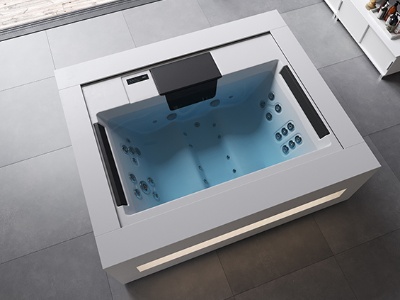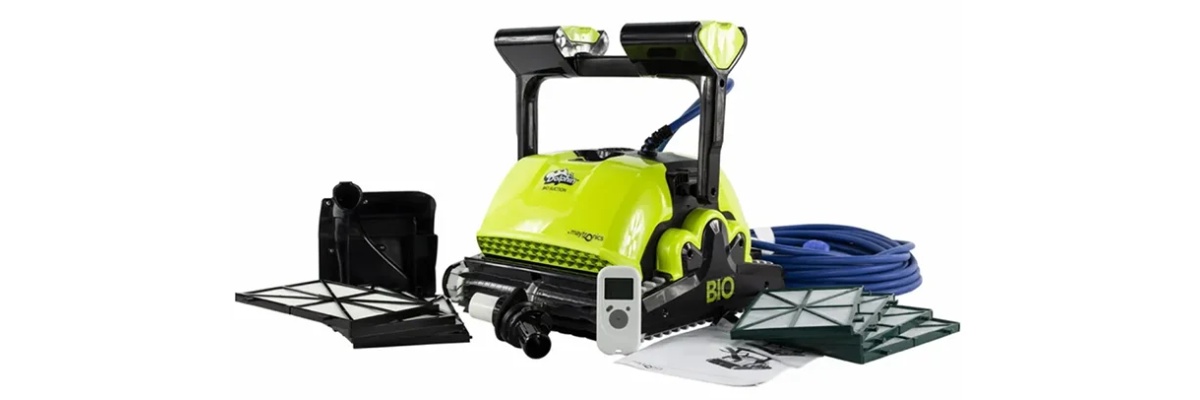
The preservation of the environment has become a priority, and this also concerns the maintenance of swimming pools. The use of an electric pool cleaner reduces the ecological impact while guaranteeing clean and healthy water. Unlike traditional cleaning methods, these modern devices optimise water consumption, limit the use of chemicals and reduce the strain on the filtration system.
A significant reduction in water consumption
Manual cleaning of a swimming pool often results in a significant waste of water. Between backwashing the filter, repeated rinsing and removing impurities, consumption can quickly skyrocket. An electric robot operates directly in the pool and collects debris without requiring additional draining of water. Models equipped with stand-alone filters reduce the workload of the main filtration system. Less used, the sand or cartridge filter requires less cleaning, which reduces the frequency of backwashing and therefore the amount of water used. This saving is particularly noticeable in regions where water restrictions are frequent.Fewer chemicals for a natural balance
A clean pool is essential to prevent the growth of algae and bacteria. Traditionally, the use of chemical treatments is essential to maintain a correct sanitary balance. However, a swimming pool regularly cleaned by a pool robot requires fewer disinfectants. Robots equipped with active brushes remove organic deposits before they turn into biofilm, thus reducing the need for algaecides or shock treatments. By keeping the water cleaner, they limit the need for chlorine, bromine or active oxygen, which is beneficial for bathers' skin and for the environment.Reduced energy consumption
Unlike hydraulic robots, which depend on the pool's filtration system, electric robots are designed to operate autonomously with optimised energy consumption. Recent models incorporate intelligent technologies that analyse the size and shape of the pool in order to optimise their movements and avoid unnecessary passages. By effectively cleaning the bottom and walls, they reduce the overall filtration time of the pool. A filtration pump that runs for a shorter time consumes less electricity, which contributes to a more responsible management of energy resources.A sustainable and responsible alternative
Investing in an electric pool cleaner is part of an approach to reduce the ecological footprint. Some models are made from recycled materials and are designed to last for several years with minimal maintenance. Their design limits the plastic waste generated by disposable cartridges or conventional filters.In addition, innovation in rechargeable batteries and improvements in low-consumption motors make electric robots a solution that is both efficient and environmentally friendly. Their use allows pool owners to enjoy a clean pool while adopting more sustainable practices.




